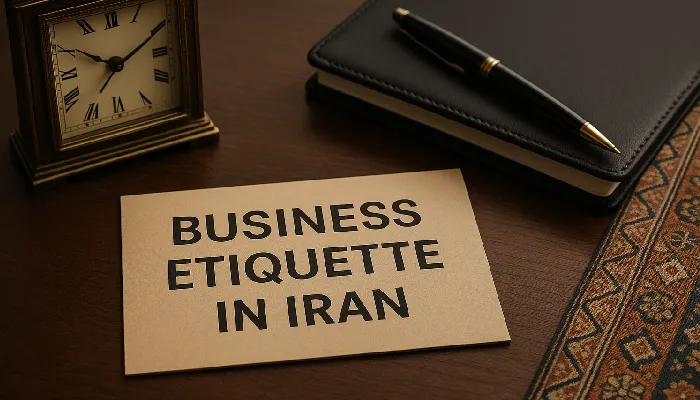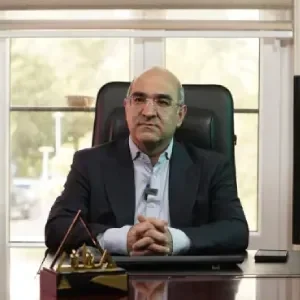Introduction: The Unspoken Rules That Define Business Success in Iran
Navigating the Iranian business environment is about more than strategy, pricing, or product-market fit. For foreign executives, understanding the unspoken rules of etiquette is critical. In Iran, where personal relationships and social norms play a dominant role in deal-making, a small misstep in behavior or communication can jeopardize months of negotiation. This article decodes the key aspects of business etiquette in Iran and offers actionable strategies that help foreign executives thrive—whether you are establishing a partnership, opening a local office, or investing in market growth.
The Cultural Foundations of Iranian Business Practices
Relationship Before Transaction
Trust is the cornerstone of doing business in Iran. Unlike many Western contexts where formal contracts are primary, in Iran, interpersonal bonds often come first. Many business deals begin only after a rapport has been built—sometimes over several meetings or even informal family introductions.
Hierarchical, Yet Interpersonal
Iranian companies tend to operate within hierarchical structures, where senior figures are the decision-makers. However, personal networks, junior-level advocates, and family ties can strongly influence outcomes. Navigating these layers with cultural sensitivity is essential.
Core Etiquette for Executives Entering the Iranian Market
Greetings, Titles, and First Impressions
Greetings: A firm but not aggressive handshake is the norm between men. Many women prefer to avoid physical contact with men, so let them initiate.
Addressing People: Always use formal titles such as Doctor, Engineer, or Mr./Mrs. followed by the last name.
Business Cards: Cards should be printed in both English and Persian. Present them respectfully, preferably with the right hand or both hands.
Meeting Culture and Communication Style
Scheduling Expectations
- Being a few minutes late is culturally acceptable, but foreign guests are expected to be punctual.
- Confirm appointments a day or two ahead.
- Prepare for meetings that might begin with non-business talk—this builds trust.
Speaking with Diplomacy
Communication is high-context. Iranians value subtlety, reading between the lines, and indirect speech.
A “yes” might mean “maybe,” and a “maybe” might mean “no.” Clarify with respect and without confrontation.
Hospitality, Gifting, and Cultural Nuance
The Art of Hospitality
Hospitality is a deeply embedded value in Iranian culture. Refusing food or tea can be seen as rude.
- Tea and Refreshments: Always accept with gratitude.
- Hosting: If you host Iranian counterparts abroad, ensure halal options are available.
- Dress Code: Men should wear long-sleeved shirts and slacks. Women must wear a headscarf and conservative clothing in all public or semi-public settings.
Giving and Receiving Gifts
- Avoid overly expensive gifts, which may be viewed with suspicion.
- Culturally appropriate gifts from your country (books, crafts, local delicacies) are appreciated.
- Do not gift alcohol, even in informal settings.
Strategic Etiquette for Building Long-Term Partnerships
Invest in Face Time
- Decisions are rarely made via email alone.
- Building trust can take multiple visits and social interactions outside the office.
- Use industry expos and conferences as soft-entry points into networks.
Understand the Tempo of Negotiations
Fast results are rare. Processes involve approvals, family input, and time.
Demonstrating patience and persistence is a sign of respect.
Iranians value loyalty. If you stay through obstacles, you’re more likely to be rewarded long-term.
Digital Etiquette: Respect Still Matters Online
While Iran’s business world is modernizing—especially in tech and creative industries—digital etiquette still follows traditional norms.
- Emails: Use formal salutations and closings.
- LinkedIn: Personalize messages and avoid direct sales pitches.
- Local Content Strategy: Brands gain credibility when they communicate in Persian and adapt content to Iranian values (family, trust, national identity).
Etiquette Mistakes to Avoid
- Talking about religion, politics, or controversial topics unless invited to do so.
- Showing impatience or using high-pressure tactics.
- Publicly disagreeing or correcting someone in front of others.
- Assuming Western business models apply without adaptation.
Case Study: A Real-World Example of Successful Cross-Cultural Partnership in Iran
To highlight how cultural etiquette directly impacts business success in Iran, consider the following case of a European tech company that successfully entered the Iranian B2B SaaS market.
Background
The company had a strong product-market fit and competitive pricing. Yet their first round of outreach via cold emails and direct proposals went unanswered for months.
The Cultural Misalignment
Their initial approach was heavily transactional, focusing on features and ROI. There were no personal introductions, no local language adaptation, and no sensitivity to cultural expectations around hierarchy or indirect communication.
The Pivot
With guidance from a local advisor, the company:
- Rewrote all communication in both Persian and English with formal and respectful tone
- Organized in-person meetings over lunch and tea rather than just formal Zoom calls
- Hired a bilingual business development manager with deep roots in Tehran’s tech ecosystem
- Participated in a local innovation summit and followed up with personalized, handwritten thank-you letters in Persian
The Result
Within four months, they signed a 5-year exclusive licensing deal with one of Iran’s largest telecom firms. The local partner cited their cultural respect and patience as major factors in the decision-making process.
Insight: Cultural Etiquette Isn’t an Accessory—It’s Infrastructure
Foreign executives who view etiquette as “extra” often miss the deeper truth: in Iran, how you approach a partnership is often more important than what you offer. Long-term success belongs to those who build relationships first, and revenue second.
Best Practices for Executives Expanding into Iran
Hire a Local Advisor: They can interpret signals and protect your reputation.
Adapt Your Brand Messaging: Respect religious values, family orientation, and national pride.
Focus on Ethical Business: Transparency and sincerity go a long way in building influence.
Recognize Holidays: Avoid meetings on Fridays or during Ramadan. Key holidays can delay decisions—plan ahead.
Conclusion : Respect Drives Growth—Partner with Cultural Intelligence
Mastering Iranian business etiquette isn’t just a matter of courtesy—it’s a competitive advantage. Executives who understand the cultural landscape can communicate with nuance, negotiate with confidence, and form partnerships that last. When you lead with respect, Iran leads you to opportunity.If you’re planning to enter or expand within the Iranian market, working with a trusted local expert is essential.
Meet Dr. Ahmad Mirabi
As a respected business consultant with deep insight into content strategy, brand localization, and executive advisory, Dr. Mirabi has helped international companies establish ethical and high-impact market presence in Iran. His strategic consultations align cultural awareness with business goals—ensuring your growth is both authentic and sustainable.
Connect Now to explore how cultural fluency can unlock your brand’s potential in Iran.



